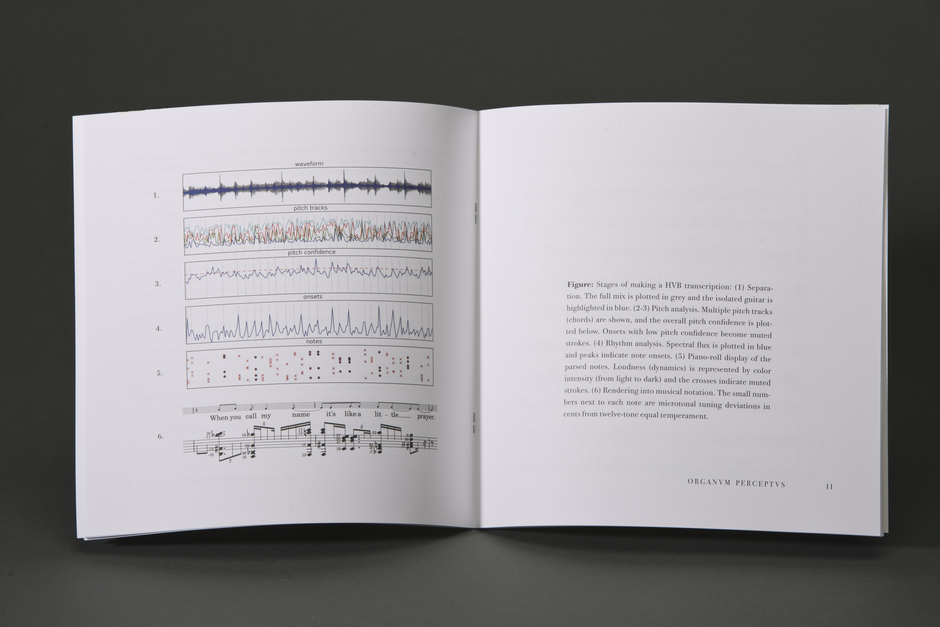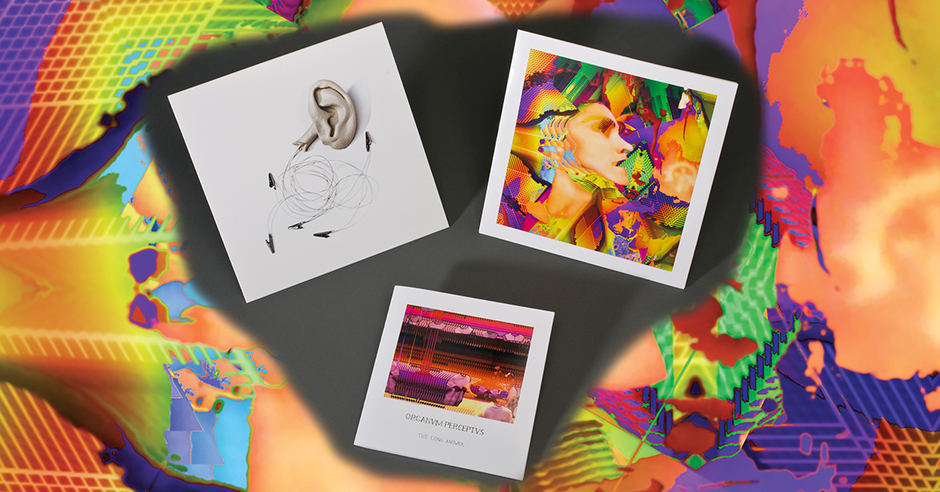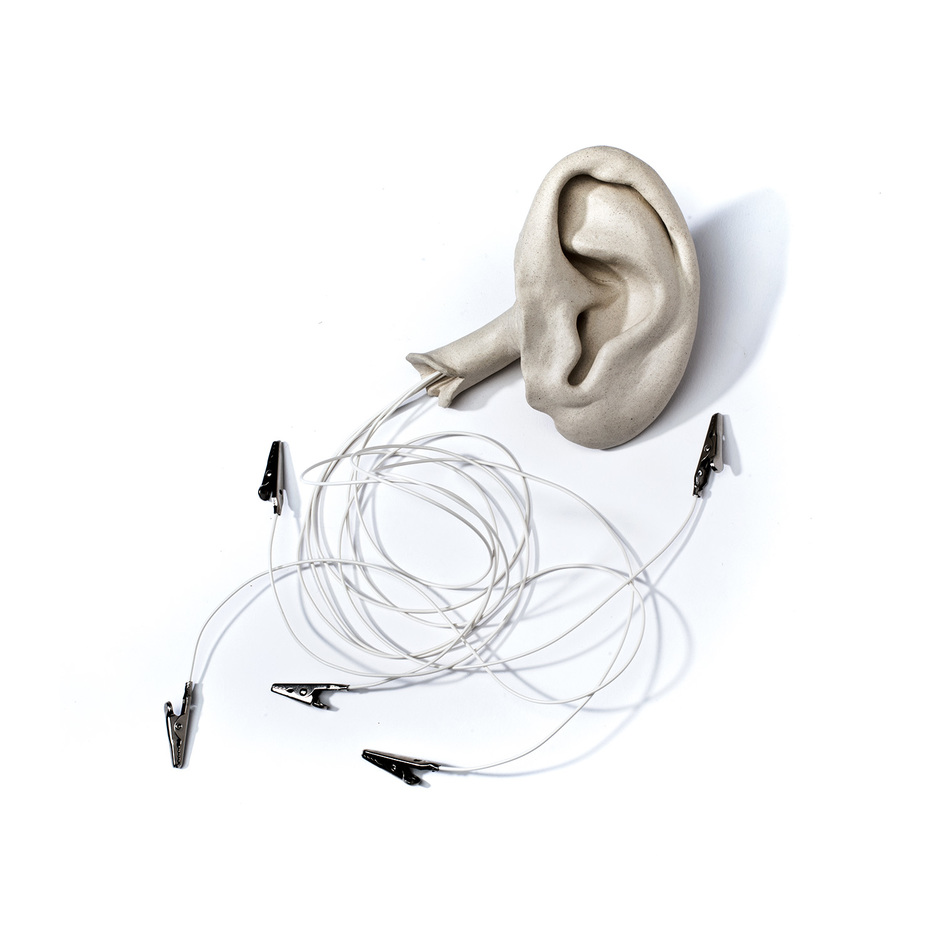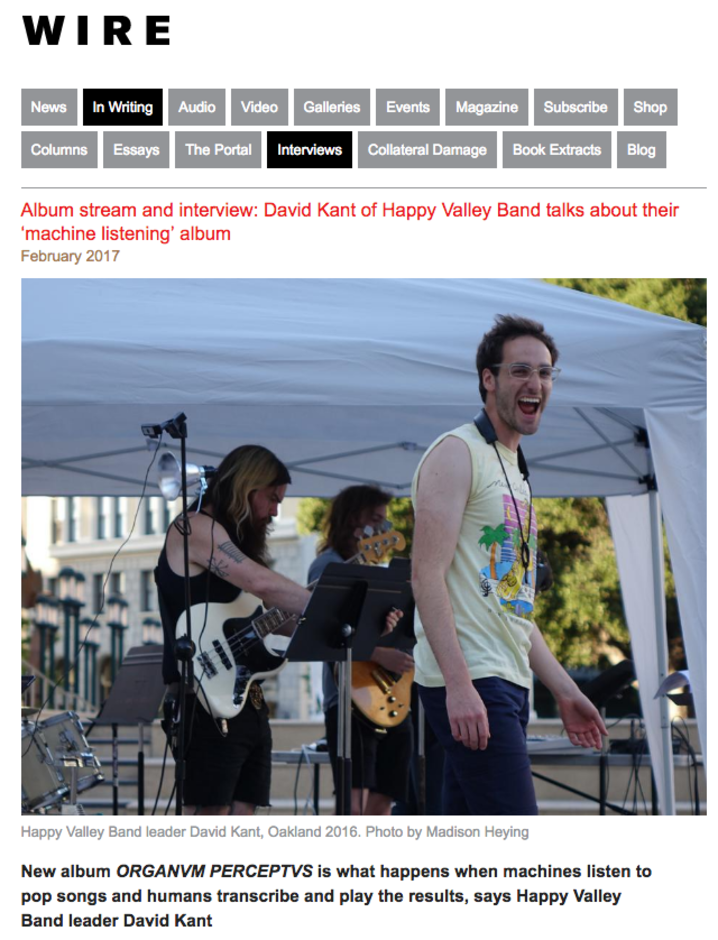Happy Valley Band: ORGANVM PERCEPTVS
The Happy Valley Band is the Great American Songbook heard through the ear of a machine. Composer / bandleader David Kant uses custom-built machine learning software to “unmix” pop songs and transcribe them back into musical notation. The Happy Valley Band plays what comes out. The machine analysis has no concern for the limits of human performance, and the resulting transcriptions are extremely complex, literal, and often impossible to play. ORGANVM PERCEPTVS, the group’s debut album, is about bringing to life this inhuman music. It features the core Happy Valley Band plus a cast of New York City and Bay Area experimental musicians.
The Happy Valley Band has been called “a shitty MP3 to MIDI converter,” “the Shaggs meets Guitar Hero,” “James Brown backed by Sun Ra,” “the best executed worst idea,” and “substantive acousmatic research.” The album, over five years in the making, is a collection of eleven songs spanning pop music history. Imagine James Brown backed by a simmering Sun Ra Arkestra, Madonna with a jittery freak-out synth rhythm section, and Herb Alpert with a Tijuana Brass that must have been led by Charles Ives.
As Kant says, “it’s not exactly about getting machines to hear like (we presume) humans do. Machines hear in as many different ways as we design and build them. We should use machines to hear differently, not to reinforce our expectations—because whose expectations are they anyway?” (from “Decomposing Music” liner notes) The project is about confronting the assumptions and idiosyncrasies of machine hearing. In an era where we have offloaded much of our mental and biological processes to semi-intelligent machines, ORGANVM PERCEPTVS asks us to examine the biases and expectations implicit in their design.
Included with ORGANVM PERCEPTVS is a print booklet containing liner notes by Kurt Gottschalk and an essay “Decomposing Music” by bandleader David Kant detailing the machine hearing process used to make the music.

Directed by composer / bandleader David Kant, the Happy Valley Band is Mustafa Walker, Alexander Dupuis, Andrew Smith, Beau Sievers, Pauline Kim Harris, and Conrad Harris. The ensemble formed in 2011 at Ostrava Days Festival of New Music specifically to play this music. ORGANVM PERCEPTVS features special guests appearances by Chris Nappi, Joseph Kubera, Thomas Verchot, Gordon Monahan, Joe Moffett, Chris Scanlon, Nathaniel Morgan, Sam Friedman, Daniel Costello, Charlotte Mundy, Jane Sheldon, Eve Gigliotti, Larry Polansky, and John Welsh.

What people are saying
Imagine a confused booking agent hiring Sun Ra’s Arkestra as the backup band for James Brown, Brian Ferneyhough doing arrangements for Patsy Cline, Elvis at a Vegas gig with Fishbone, or Neil Young putting words to the Concord Sonata. The Happy Valley Band manages to smash at least a dozen comfortable precepts about our culture and how music is suppose to be made while simultaneously doing substantive acousmatic research. And despite all of this, it sounds absolutely amazing! - David Dunn
In the world, this is a world. How can I show you? Your voice can take me there. Peasants singing, drummers drumming, colors flying in the air. Just like a dream, it burns. Why can’t you see what you’re doing to me? I used to feel so uninspired, get down. You make me feel crazy. I’ve been waiting for this moment all my life. - Laura Steenberge
The Happy Valley Band are the wily translators of an epic story that tells the tale of the Singularity’s awkward and raucous first encounter with the machinery of Rock and Roll. Our unlikely hero, the Computer, tries desperately to ingest, process and replicate the idolatry of Stardom, but is confronted by its inability to to truly understand the conceptual components of melodic intensity, rhythmic groove and the almighty influence of celebrity. (Think the Shaggs meets Guitar Hero!) - Jessie Marino
The Happy Valley Band is not so much a band as it is a concept of a band. They render pop classics at once both listenable and unlistenable, deconstructing arrangements that become avant garde renditions that fold back onto themselves, forming Mobius strip interpretations. In the process, they stretch the limits of song recognition, suddenly springing back to a familiar lyric before veering into the unrecognizable again. - Gordon Monahan
Press
Interview and Advance stream in The Wire
“refracted and amplified through the software in often mystifying ways, resulting in warped interpretations that are unexpected, to say the least” - Emily Bick, The Wire
News Feature in Tiny Mix Tapes
"the latest iteration of pop music’s post-human future… delirious and discordant reworkings of such classics as ‘Like a Prayer,’ ‘Suspicious Minds,’ and ‘Ring of Fire,’ performed by modern experimental and avant/garde luminaries.” - Colin Fitzgerald, Tiny Mix Tapes
Credits and Personnel
- Alexander Dupuis: Guitars
- Mustafa Walker: Electric and Upright Bass
- Beau Sievers: Drum Kit
- Andrew Smith: Piano and Keyboards
- David Kant: Saxophones
- Pauline Kim Harris: Violin
- Conrad Harris: Violin
- Chris Nappi: Percussion
- Joseph Kubera: Piano
- Daniel Costello: French Horn
- Thomas Verchot: Trumpet and Flugelhorn
- Joe Moffett: Trumpet
- Christoper Scanlon: Trumpet
- Nathaniel Morgan: Alto Saxophone
- Sam Friedman: Harmonica
- Charlotte Mundy: Voice
- Jane Sheldon: Voice
- Eve Gigliotti: Voice
- John Welsh: Guitar
- Larry Polansky: Guitar
Composed by David Kant
ORGANVM PERCEPTVS was recorded at The Bunker Studio in Brooklyn, NY by Joseph Branciforte and Todd Carder. Mixed by Joseph Branciforte with the Happy Valley Band. Mastered by Cookie Marenco and Patrick O'Connor at OTR Studios. Additional recording engineering by Steve Schwartz and Arvid Tomayko, Ulrike Wentzkat, and David Dunn.
Jacket design by Rachel Cassandra, photography by RR Jones, and ceramic sculpture of David Kant’s left ear by Elizabeth Torrance. Madonna portrait by Alexander Dupuis.
Booklet layout and design by Mustafa Walker, handwriting by Rachel Cassandra, and cover image by Alexander Dupuis, with support from the University of California Santa Cruz, Arts Dean’s Fund for Excellence.
ALL OF THE MUSIC AND NONE OF THE SONGS © 2016 David Kant



